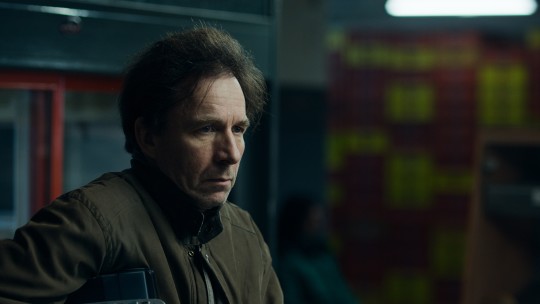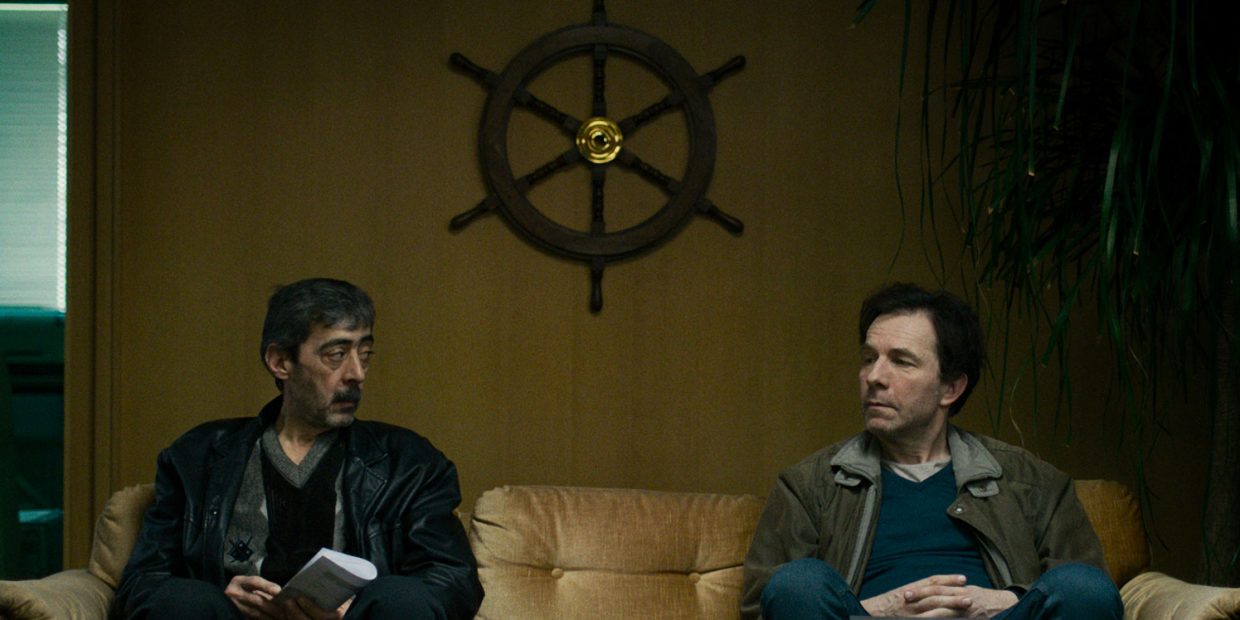By Amy Dunning
Directed by Måns Månsson
Gothenburg Film Festival review
This film adaptation of Kristian Lundberg’s influential novel, is a semi-autobiographical tale of social immobility and the anguish that it can cause. The story follows an unnamed failing author, who is known by the reference number he is given when he begins working as a labourer at the local harbour in Malmo. Reduced to 11811, he becomes part of the machine, a dehumanised component of the company, easily replaceable as an hourly-rate employee. Taking the job out of desperation, 11811 struggles to accept the malpractices that occur in the workplace; often having to decide whether to keep quiet in order to keep his job or to stand up and support his colleagues who are mistreated. A slippery slope forces 11811 to swallow his dignity. Making the most of his dire situation, he continues in the manually intensive and dangerous job in order to provide for his teenage son.
Måns Månsson’s directing finds contrast in the mechanised world we live in, with man and machine both coexisting but never truly living. Tedious repetitions of daily workplace habits illuminate the dreary life that many manual workers experience. The majority of the workers are immigrants, who resultantly experience prejudice and are often accused of crimes they did not commit. The conditions at the harbour are so poor that many of the employees are reduced to petty theft in order to increase their salaries.

Wide camera shots isolate 11811 among hundreds of cars frequently throughout the film, detaching him from his family and society. The harsh reality of living on the breadline removes him and his son from their previous middle class lifestyle, forcing them to sell their possessions in order to make ends meet. Losing the car forces 11811 to take the bus to work which also contributes to further loss of his self-autonomy. He becomes a shrunken shell of a man, fully immersed in the world of unskilled work and unable to provide for his son.
Despite the mundanity of the events in the film, it is incredibly difficult to not become emotionally affected by the disastrous luck that 11811 has. Played by Anders Mossling, the film effectively portrays a man on the cusp of a midlife crisis. Evocatively filmed, Mossling presents a character study that leaves you wanting more, barely scratching the surface of his troubled life. It is never made explicitly clear to the viewer why he had a sudden change of heart and abandoned his writing career. Similarly, there is little background description of his family situation; it is suggested that his wife left him and her son, making him the single provider. Although the film provides more questions than it answers, this does not detract from the film’s quality. It successfully portrays life in one of its darkest hours, and the ways in which you have to adapt or be swept along with the tide. Mossling’s performance is spectacular and truly carries the film through to the end. Frustrating as the slow-pace of the film is, it works with the mundanity of 11811’s life to powerfully carry the importance of the film. It is a film about one man’s struggle to come to terms with his life, and how in the end, we are all the same, and we all have burdens to carry.
To bring The Yard to your region, cast your DooVote here!
Recommended Viewing on FilmDoo:
(UK & Ireland only)








